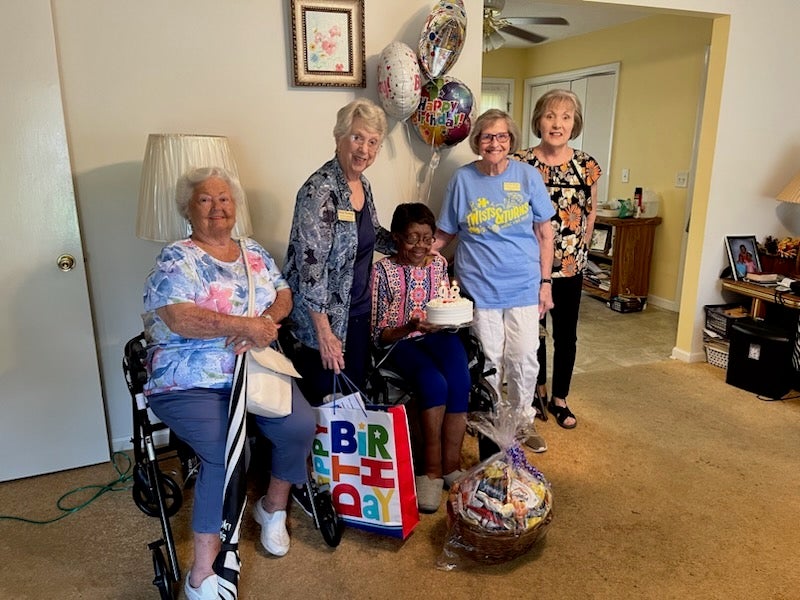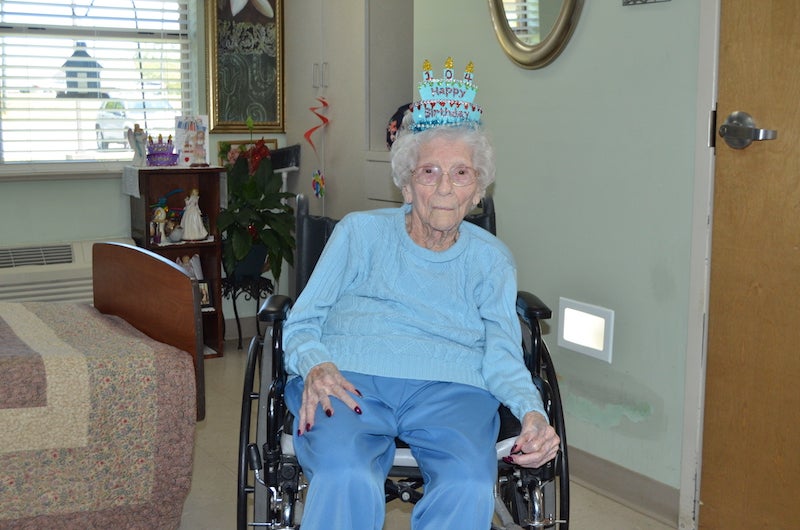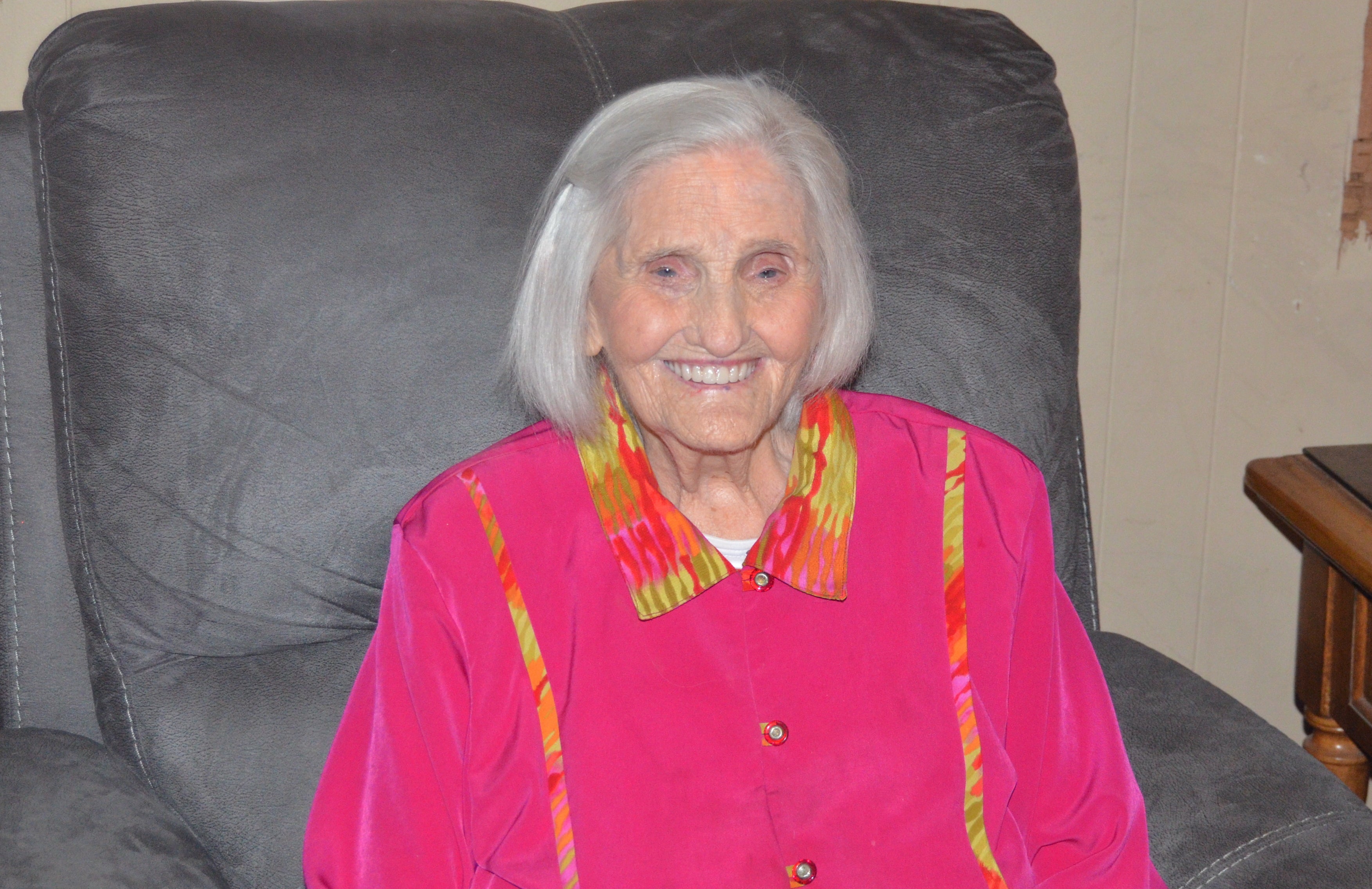Tuesday Night Book Club discusses ‘A Hatchett Runs Through It’
Published 11:50 pm Tuesday, August 19, 2008
The name of our book for July was A Hatchet Runs through It by Alvin Bridges. I believe reading could be acclaimed the universal past time. When reading about your own area and the people who live there that is a plus. When names of people you know, or have personally known of appear in print that is really putting the icing on the reading cake. This little book by Alvin Bridges is just such a book. Familiar names of people you know keep appearing throughout the book.
The name of our book for July intrigued me from the beginning. A Hatchet Runs through It turned into a geography lesson to learn where Alvin Bridges was writing about. Hatchet Creek is a stream of water that flows near the little town of Rockford. Mr. Bridges was born and spent many happy carefree years growing up along the banks of this creek. Many of his happiest memories are connected with visits when his big city cousins came to visit. Each was enthralled with the lifestyle of the other. It appears that Alvin’s mother was a good cook and a gracious hostess. More than half a century later people who were fortunate enough to know this lady, remember her culinary talents.
Alvin states that his high school principal has been an inspiration to him throughout the formative years of his life and continues to be an influence on his life today. As Alvin left his family farm to become a citizen of the world, he never forgot nor failed to give credit, to where his roots were. I consider that character trait an important part of his psyche.
Alvin remembers coming to Clanton to see his first moving starring Lillian Gish, the silent movie actress. Do you remember your first movie? I do. My first movie featured Clark Gable and Claudet Colbert. The handsome Mr. Gable remained my favorite actor for the rest of his life. Alvin’s photograph on page 56 of his book is as near a facsimile of the handsome Mr. Gable as I believe that it would be possible to find. Alvin did not go unnoticed by the ladies of his day.
At some point, Alvin joined the army as the war clouds of World War II were quickly gathering. Thus his journey toward becoming a citizen of the world began. This little farm boy from the banks of Hatchet Creek was shipped up to Hartford, Connecticut, on the first step of that journey. He was there when the Japanese bombed Pearl Harbor on December 7, 1941. On Christmas Day of that year, all the boys in his unit had gone out except him and one other boy. A local man came in and asked if they would like to spend the day with him and his family. Thus these two homesick GI’s got a taste of Yankee hospitality there in cold Connecticut at a low point in their young lives. Later Alvin was shipped down to Charleston, South Carolina for a few days before heading cross country to pass through the Panama Canal from the Atlantic side to the Pacific side on the first leg of his journey overseas. This was before Jimmy Carter gave our canal away, but that is another story. After some days at sea, the boys were told that the Island of Bora Bora was their destination. That was the equivalent of setting this farm boy down on another planet, but he was immediately impressed with the beauty of this undeveloped tropical island. He writes of its unspoiled natural beauty in extravagant terms. He was much impressed with the native hula girls and their dancing. It was not the way folks danced along Hatchet Creek!
The beauty of one natural phenomenon that he witnessed has remained with him to this day. He was on guard duty one night after a rain and saw a rainbow in the sky over Bora Bora. He said it was spectacularly beautiful and that few people are privileged to see it. Come to think of it, I have never seen a rainbow at night. Have you? Besides military duty, Alvin and his unit spent their times building roads on the island.
Alvin’s praise report on the beauty of the island must live up to his words, for many years after his tour of duty there ended; he chose to go back there on vacation. He did not find the unspoiled island that he had left. There were fast food restaurants and fast cars to take you there on roads that Alvin had helped to build.
His traditional initiation administered after crossing the International Date Line made an imprint on his life. It gave him a unique way to say “no” when asked to do something that he did not intend to do. Read his explanation.
He writes with sadness about what happened one day before he left Bora Bora when a member of his gun unit receives a Dear John letter from his wife. If you are too young to remember WWII, you may have to ask an older person to explain what that kind of letter was.
After Bora Bora, Alvin was sent to Guadalcanal to help clean up that island after fierce fighting secured it from the Japanese. A Japanese ship had been sunk right off the beach from his camp. One day he swam out to it to see what he could see. What he noticed immediately was that parts of the ship were marked where they had been made. It struck this GI as real irony that “Made in USA” was plainly marked on many of the parts. He realized that his own government had sold the Japanese parts to build this sunken ship and others. Now American boys had to sink them in order to win this war. It was a sobering thought to this GI.
Shortly after arriving on Guadalcanal, Alvin’s unit was told that their next move would be to the front. All of the boys were given the opportunity to go to a movie that night. Alvin did not accept that offer. I think the most poignant part of his book is when he tells us that instead of going to the movie that night he went to his tent to talk to God. This gives you a clue into the character of Alvin Bridges.
From that point on, he did a lot of island hopping during the course of his military duty-Treasure Island, New Georgia Islands, Siva, Sterling Island, and others. His military exploits will keep you spellbound as you follow him from one adventure to the next. This was the part of the book that I enjoyed most. It reads like the script for a terrific movie.
Thanksgiving Day arrived while Alvin’s unit was on Sterling Island. His unit had been without food for several days. Food drops they depended on had not happened. But this day was different; this was his national holiday when every red blooded American was entitled to eat the national bird. Read how they solved this problem and ate their Thanksgiving turkey with gusto.
Finally the day arrived for Alvin to fly home. The only other time he had been in airplane was when Charles Wade gave him a mini flight at Clanton airport years ago. After crossing the Pacific Ocean, they landed at Henderson Field, Hawaii. His next stop was San Diego, California, and eventually, Alabama, after clearance along the way.
The first person that Alvin was most anxious to look up was a young lady whom he had corresponded with all the while he was in service. Her name was Mildred Easterling. He asked her to marry him and she accepted and even bought the license after Alvin ran out of money after having work done on her automobile. They were married on December 15, 1944. On Christmas Eve Mildred received word that a florist in Montgomery had flowers for her to pick up. Who was sending flowers to Mildred after she was married? Another reason to read. I won’t tell.
Once when Alvin was stationed in San Diego, Mildred decided that she wanted to go spend a month with her husband. Her first problem was getting stamps so she could buy tires for her car and enough gasoline to make the round trip to California. After getting the needed stamps, this little Clanton lady drove cross country to San Diego when few women would have dared. Read this and cry! Once back home from California, Mildred was checking up on her expense account. She found that her gas bills for her round trip amounted to $35.00. I love that story. I never knew Mildred Bridges, but I know that we could have been friends.
After being discharged from the army, Alvin and Mildred operated a number of businesses in Chilton County, including a café, grocery store and a dress shop. They also liked to travel and they did.
Tragically, Mildred died of cancer in 1981.
After Mildred’s death, Alvin married Faye Wilder Aycock. Faye is now deceased.
Always civic minded, Alvin ran for Tax Collector of Chilton County in 1982 but was defeated.
Today Alvin lives in Clanton. He is an avid reader and an interesting person to talk with. Over his lifetime, he collected quite an impressive personal library. Recently he donated a large portion of his library to Chilton/Clanton Public Library in Clanton. He was guest speaker at Jemison’s Tuesday Night Book Club in July. We enjoyed having him talk with us about his book and his life. He discusses the good and the bad times in his life with equal fervor. He graciously autographed copies of his book for all who wished him to. We wish him great success with his book detailing the life and times of Alvin Bridges.
Those in attendance for this meeting were hostesses Nancy Rogers and Mae Hunnicutt; also Doris Jones, Karen Jones, Jean Gilmore, Anne Glass, John David Glasscock, Jeanette Frost, Cass Kenum, Carol and Ned Lowery, Steve Smith and Judy Williams.






